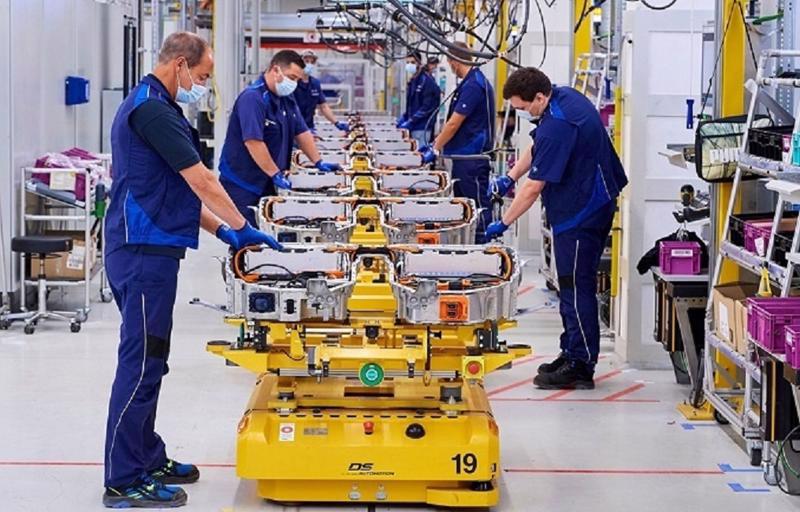The European Chamber of Commerce in Vietnam (EuroCham Vietnam) released its Q3 2024 Business Confidence Index (BCI) report on October 8, reflecting a positive trend in business sentiment despite the economic challenges posed by Typhoon Yagi and operational hurdles.
The BCI score saw a notable increase, rising from 45.1 in Q3 2023 to 52.0 in Q3 2024, signaling a strong year-on-year recovery despite tough external conditions.
EuroCham’s BCI survey is conducted by Decision Lab to gather and analyze insights from the chamber’s network of 1,400 members. This quarterly assessment acts as a barometer of sentiment among European businesses operating in Vietnam, providing real-time insights into the evolving business landscape of one of Southeast Asia’s most dynamic markets.
The damage caused by Typhoon Yagi, which has severely impacted the infrastructure and agricultural sectors in Northern Vietnam, has led the Vietnamese government to forecast a 0.15% reduction in GDP for 2024, with estimated losses reaching $1.63 billion.
Yet EuroCham’s latest survey, conducted after the typhoon from September 12 to 25, shows that nearly half (47.4%) of respondents are confident their companies will see improvement in the coming quarter. Additionally, long-term optimism remains high, with 69.3% expecting a favorable business climate over the next five years.
This positive outlook is further reinforced by Vietnam’s continued appeal as an investment destination, with 67% of European businesses still recommending the country despite ongoing challenges.
“Despite the recent economic strain caused by Typhoon Yagi, the resilience and adaptability of both the Vietnamese economy and European businesses operating here are evident in this latest survey. These results are not just numbers; they tell a story of Vietnam’s evolving role as a strategic business hub,” said Mr. Bruno Jaspaert, Chairman of EuroCham Vietnam. “The typhoon’s impact also highlights the urgent need to address climate change, making the Green Economy Forum & Exhibition (GEFE) 2024, from 21 to 23 October, a timely platform to drive necessary dialogue on how Vietnam can remain competitive while transitioning towards a greener, more sustainable future.”
As in previous quarters, the survey shows that the top three operational obstacles for European businesses are administrative burdens, unclear regulations, and difficulties in obtaining licenses and permits.
A significant 66% of companies employ between 1% and 9% foreign workers, with only 6% employing more than 20%. While businesses are eager to tap into both local and international talent, barriers to hiring Vietnamese staff include the lack of necessary skills and experience, high turnover rates, and limited resources for training. For foreign experts, visa and work permit complexities, restrictive labor regulations, and high costs remain key obstacles, compounded by difficulties in obtaining necessary licenses and approvals.
These hiring challenges are compounded by the negative experiences that one-third of respondents report with Vietnam’s visa system, discourage many foreign professionals from bringing their expertise to the country.
Additionally, companies noted persistent hurdles in tax-related processes and compliance with firefighting regulations.
Expansion trends
Despite these hurdles, business expansion plans remain strong, with close to 80% of companies reporting 1-3 offices or manufacturing units in Vietnam. Among businesses that shared their expansion plans, over half plan to expand operations, with many intending to establish new manufacturing facilities in the North or open additional offices in key cities such as Hanoi, Ho Chi Minh City, Da Nang, and Can Tho.
Green transition and Digitalization take center stage
Following the new Decree on the mechanism for Direct Power Purchase Agreement (DPPA) issued in July this year, nearly 30% of respondents expect to benefit from renewable energy projects, further solidifying Vietnam’s commitment to a green transition. One in four service providers and companies with 100 or more employees anticipate the DPPA will benefit them moderately or significantly. While approximately half (47.4%) of surveyed businesses are confident in their ability to fully transition to renewable energy by 2050, gaps remain in policy understanding and implementation.
“GEFE 2024 will provide a timely platform for addressing these gaps,” said Mr. Jaspaert. “At the conference, we’ll delve into key topics like energy transition and digitalization, not only in terms of technical infrastructure but also in fostering green leadership and building sustainable ecosystems across industries.”
Digitalization was also identified as a critical area for improvement, particularly in alleviating human resource constraints and streamlining administrative processes. The BCI survey revealed a moderate rate of AI/ML adoption, with 46.1% of companies reporting to have adopted AI/ML in their operations. However, most adoption remains in the early stages, pointing to substantial opportunities for investment in digitalization projects.
“While the survey shows an overall improvement, the challenges highlighted—particularly in digitalization—underscore the need for concerted efforts to enhance these areas,” said Mr. Thue Quist Thomasen, CEO of Decision Lab. “The adoption of technology will be pivotal for companies to streamline processes and adapt to sustainable standards in the future.”









 Google translate
Google translate